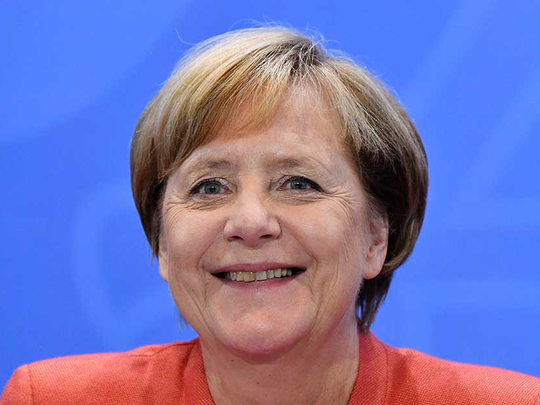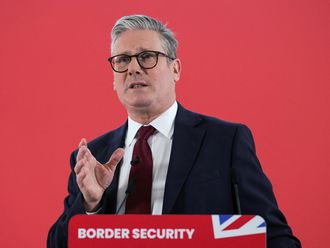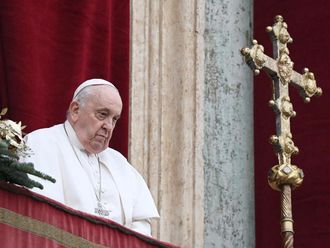
BErlin Three weeks before German elections, Chancellor Angela Merkel on Monday faced the toxic “dieselgate” scandal that pits the interests of Germany’s powerful auto sector against public health fears over air pollution.
Merkel met the mayors of some 30 cities and towns where courts or local governments are considering driving bans on diesel vehicles to cut down on nitrogen oxides (NOx) emissions that cause smog, acid rain and fine particle pollution.
The chancellor has made clear she will try to stop such bans in order to protect the crucial industrial sector whose global titans such as VW, Audi, Mercedes and BMW earn billions of euros in exports and employ between 800,000 and 900,000 people.
“We are working to prevent driving bans,” Merkel said before the meeting, stressing in a TV election debate on Sunday that “we will need the combustion engine for decades to come”.
While Merkel has often spoken of her long-term vision of a carbon-free economy run by climate friendly green technology, she made clear last week that, when it comes to the diesel issue, “this is 2017”.
The emissions cheating scandal that has engulfed VW and other companies since 2015 has already depressed the resale value of diesel cars, and urban driving bans would sharply accelerate the trend — a powerful election issue for millions of voters.
Monday’s meeting was expected to focus on ways to prevent such bans by helping Germany’s smoggiest cities clear the air — including by promoting electric car charging infrastructure, cycling lanes and buses and garbage trucks that run on clean energies.
Money for some of the programmes could come from a new €500-billion (Dh2.1 trillion) fund, financed in equal parts by the German government and the car industry.
VW plunged into its worst crisis when US investigators in 2015 forced it to admit having fitted 11 million diesel engines with “defeat devices” to cheat on emissions tests. They hid the fact that vehicles spewed as much as 30 times the permissible NOx limits during normal driving.
Report inappropriate predictions
VW has agreed to pay $4.3 billion (Dh15 billion) in penalties and $17.5 billion in civil settlements in the US, it has escaped fines of such magnitude in Europe.
At a recent government-industry “diesel summit” in Germany, carmakers promised to reduce emissions with software patches, rather than more expensive hardware fixes, while also offering trade-in incentives for old diesels.
Environmental group Greenpeace fumed that “instead of protecting people in cities from toxic exhaust fumes and promoting innovation in the auto industry, the government continues to tolerate these pretend-solutions”.
WWF has accused the Merkel government of a “misguided protectionism” of the car sector that ends up hurting green innovation while foreign competitors are forging ahead.
And Juergen Resch of environmental pressure group DUH, which is behind many of the court challenges, has vowed to bring even more cases, stressing that NOx is linked to more than 10,000 premature deaths per year in Germany.
Merkel was dubbed the “car chancellor” in 2013 after she went to bat for the sector and argued against an EU cap on emissions.
But she and her centre-right CDU are not alone in having cosy ties with the auto sector, the backbone of the German economy.
Germany’s other major party, the centre-left Social Democrats (SPD), also have deep ties. The SPD stronghold state of Lower Saxony, where VW is based, has a 20-per cent stake in the company.
Merkel has repeatedly said she was “angered” by the auto sector’s transgressions and demanded more “honesty and transparency” in the future.
However, she has also spoken out against costly hardware fixes for diesel engines, and refused to commit to a date by which Germany should phase out fossil fuel-powered cars, as Britain and France have vowed to do by 2040.












